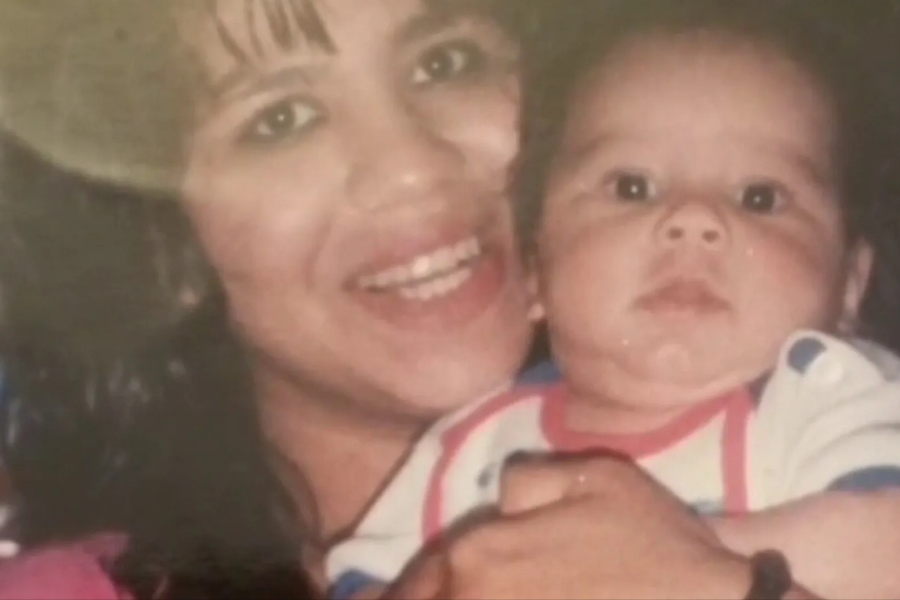In 2008, Melissa Lucio was condemned to death in Texas for the homicide of her 2-year old little girl Mariah, who passed on two days after a grievous tumble down a stairway. In shock and lamenting the deficiency of her child — the most youthful of her 12 youngsters at that point — Ms.
Lucio was taken into police guardianship and promptly faulted for her girl’s passing. The Territory of Texas has booked Ms. Lucio’s execution for April 27, for a wrongdoing that won’t ever happen. On Feb. 8, lawyers for Ms. Lucio documented a movement to pull out or change her approaching execution date, and on Walk 22, her lawful group recorded a request for mercy to the lead representative and Texas Leading group of Exonerations and Paroles. But Ms. Lucio’s life is still in danger.
On April 15, Ms. Lucio’s lawyers documented a habeas request with the Texas Court of Criminal Requests looking for a stay of her execution and contending that she merits another preliminary since she is blameless and the State depended on misleading proof, and concealed great proof, to convict her. Peruse and share these vital realities before Texas commits the irreversible error of killing a blameless lady.
Mariah’s death was a tragic accident, not a murder.
Mariah tumbled down a stairwell while the family was moving homes on Feb. 15, 2007. The little child had a gentle actual inability that made her unsound while strolling and inclined to stumble.
After two days, she slept and didn’t awaken. Rather than finding a way the ways to find out about Mariah’s wellbeing history and examining the reasons for her wounds, specialists promptly rushed to make the judgment call that she had been killed and, through a coercive cross examination, compelled Ms.
Lucio to offer a misleading expression. Almost 1 out of 3 absolved ladies were wrongly sentenced for hurting youngsters or other friends and family in their consideration and more than 70% were wrongly indicted for wrongdoings that never occurred — occasions that were mishaps, passings by self destruction, or manufactured — as per information from the Public Library of Absolutions.
Melissa has maintained her innocence for over 14 years.
Ms. Lucio has kept up with her honesty waiting for capital punishment for over 14 years. During her cross examination, Ms. Lucio affirmed her blamelessness in excess of multiple times, until she was maneuvered toward dishonestly getting a sense of ownership with a portion of Mariah’s wounds by cops. The cross examining officials would not hear reality: that Melissa didn’t, and wouldn’t, at any point hurt her kids.
Melissa was coercively interrogated by police two hours after her daughter died.
Analysts raced to judgment and, only two hours after Mariah passed on, took Ms. Lucio in for a cross-examination. During the cross examination, officials castigated and scared Ms. Lucio, who was pregnant and in shock from the deficiency of her youngster, for five hours.
They utilized coercive techniques known to create bogus admissions. Research has shown that overcomers of sexual maltreatment and brutality, similar to Ms. Lucio, are much more defenseless against erroneously admitting under such coercive circumstances. Also, specialists who have assessed Ms. Lucio’s case, including her cross examination records, have inferred that Ms.
Lucio “was constantly forced and broadly controlled” during the cross examination. Following a few hours of cross examination, Ms. Lucio said, “I surmise I got it done,” and offered other implicating expressions, to get the officials to end the cross examination.
Her unintentional assertion was then portrayed by the indictment as an admission to kill. Two of the officials who questioned Ms. Lucio were available at Mariah’s examination, prompting a one-sided post-mortem process, and an inadequate examination concerning Mariah’s wellbeing history and reasons for her wounds and passing.
False and misleading evidence was presented at Melissa’s trial.
At Ms. Lucio’s preliminary, the clinical inspector affirmed that the injuries and wounds on Mariah’s body could have been brought about by misuse. In any case, pathologists who have audited the proof have reasoned that this declaration was misleading.
Mariah’s post-mortem gave indications of a blood coagulation jumble, which causes bountiful swelling all through the body. At the hour of her passing, Mariah was mending from a physical issue to her arm, which the clinical inspector likewise said was an indication of misuse.
Nonetheless, a pediatric muscular specialist who evaluated the proof reasoned that the clinical inspector’s declaration was misdirecting and “there isn’t anything about” Mariah’s “crack that shows that it was the consequence of a deliberate demonstration or misuse” This was an incredibly normal sort of physical issue among little children that can result from a tumble from standing level.
The clinical inspector likewise affirmed at preliminary that an imprint on Mariah’s body were indentations. Indentation examination has been entirely ruined since Ms. Lucio’s preliminary since it has no logical premise. Studies have demonstrated the way that even prepared scientific dental specialists can’t concur whether a physical issue is an indentation.
In 2016, in acknowledgment of the way that indentation proof needs logical legitimacy and following the exemption of a man in Texas sentenced in light of defective indentation proof, the Texas Scientific Science Commission suggested a far reaching ban on the utilization of indentation proof in criminal cases.
The state presented no evidence that Melissa abused any of her children.
Large number of pages of Youngster Defensive Administrations records show that Ms. Lucio’s 12 youngsters never said she was rough with them and no case managers noted indications of misuse. No actual proof showed in any case.
“The State introduced no actual proof or witness declaration laying out that Lucio manhandled Mariah or any of her youngsters, not to mention killed Mariah,” Judge Catharina Haynes composed for the benefit of the seven contradicting decided from the U.S. Court of Allures for the Fifth Circuit. “The jury was denied of key proof to gauge: that is the point.”
Ms. Lucio struggled at times to provide for her family, but was a caring mother, who did her best given her incredibly difficult circumstances.
Melissa is an overcomer that could only be described as epic of sexual maltreatment and aggressive behavior at home. Ms. Lucio is an overcomer of long lasting, rehashed rape and aggressive behavior at home. She was physically mishandled by relatives starting at 6 years old.
Ms. Lucio persevered through maltreatment all through her life as a youngster and into her teen years. At 16, she turned into a kid lady to get away. In any case, Ms. Lucio’s better half sustained the pattern of misuse. Still a minor and incapable to leave the harmful marriage, Ms.
Lucio was caught and fostered a substance use issue. Her significant other later deserted her and their five kids. Ms. Lucio had nine additional kids, including Mariah. Her next accomplice, who was additionally harmful, more than once assaulted her, and took steps to kill her.
A therapist who investigated ongoing testing of Melissa said that Melissa has “profoundly strange” levels of weakness to police pressure in view of her experience.
The jury did not hear Melissa’s defense and some of her jurors are calling for a new trial.
On April 12, lawyers for Melissa documented a supplemental pardon application including another statement from a fifth legal hearer — Melissa’s jury foreperson — who joins the calls of four different attendants and the other to end Melissa’s forthcoming execution or award her another preliminary where new proof of her guiltlessness can be thought of.
“I’m currently persuaded that the jury failed to understand the situation and I realize that there is an excess of uncertainty to execute Lucio. On the off chance that I could reclaim my vote, I would,” Johnny Galvan Jr., one of the hearers in Ms. Lucio’s case, wrote in a new commentary in the Houston Narrative. Specifically, the jury never found out about the degree of Ms. Lucio’s set of experiences of kid sexual maltreatment and aggressive behavior at home and how it formed her responses promptly following her girl’s demise.
The preliminary court denied this declaration yet permitted the Texas Officer who forced Ms. Lucio’s implicating explanation to affirm, dishonestly, for the arraignment that Ms. Lucio’s drooped stance, inactivity, and inability to visually engage let him know that she was liable. Without that unique circumstance, the jury was without a doubt influenced by Ms.
Lucio’s assertion and the Texas Officer’s declaration about her disposition during the cross examination. The oversight of this vital proof was especially harming on the grounds that the indictment had a feeble case for capital homicide, and a much more fragile case for a capital punishment. Ms. Lucio had no earlier record of viciousness.
Cameron County D.A. Armando Villalobos was running for re-election and seeking a “win,” and is now serving a 13-year federal prison sentence for bribery and extortion.
Lacking strong actual proof, Cameron Area Lead prosecutor Armando Villalobos introduced Ms. Lucio’s propitiatory assertion to the jury as a “admission” to manslaughter and looked for capital punishment. At that point, Mr.
Villalobos was looking for re-appointment, and experienced harsh criticism for neglecting to completely explore or indict in excess of 100 past charges of youngster misuse. In front of the political decision, Mr. Villalobos looked to make a model in Ms. Lucio’s case, which assisted him with showing up “hard on wrongdoing.” Today, the previous lead prosecutor is serving a 13-year government jail sentence for pay off and coercion.
Melissa’s case has all the hallmarks of a wrongful conviction built upon a false confession.
Essentially completely disproved admission cases share the accompanying three things for all intents and purpose: A blameless individual is misclassified as a blameworthy suspect Police force an honest individual into dishonestly implicating themselves Police “defile” the individual’s assertion — meaning they feed the honest individual wrongdoing realities or a particular story of responsibility.
There is currently proof that each of the three of these things occurred in Ms. Lucio’s case. When cops experienced Ms. Lucio, they misclassified her reaction to the melancholy and shock of her girl’s demise as demonstrative of culpability.
The officials depended on their assumptions about how a mother “ought to” act in this disastrous situation and their “hunch, without a careful criminological assessment of the proof” to draw an informal “assumption of responsibility,” which then, at that point, made “exclusive focus” of examiners and the questioning officials. Officials utilized intensely manipulative strategies — a significant number of which ascend to the degree of “risk factors” for bogus admission — to constrain Ms.
Lucio to implicate herself. What we know today — which we didn’t know a long time back — is that overcomers of huge injury and homegrown maltreatment, similar to Ms. Lucio, are especially helpless against the coercive police cross examination that Ms. Lucio persevered for north of five hours. As specialists make sense of, “especially when employed by male cops” the kind of cross examination utilized against Ms.
Lucio “essentially summarizes the psychodynamics of homegrown maltreatment.” In this way, it’s a good idea that ladies, similar to Ms. Lucio, who figured out how to endure homegrown maltreatment by “obliging and adjusting to the desires of the rough accomplice” will similarly oblige and adjust to the requests of an undermining, equipped male cop in the cross examination room. Officials tainted the “admission” by over and over showing Ms.
Lucio photos of important proof and recommending specific words and realities, which she at last parroted back to the officials. As two specialists on bogus not entirely set in stone, because of the officials’ strategies and Ms. Lucio’s weakness, her implicating explanations are not a dependable “admission” of her responsibility, but instead are “a spewing forth of data transferred to her from specialists all through the cross examination.” Lucio Replacement Writ Application, at 136 (citing David Thompson’s Master Report).
There is widespread — and growing — support for clemency for Melissa across Texas
Until this point in time, more than 100 bipartisan Texas administrators marked letters encouraging the Texas Leading group of Absolutions and Paroles to suggest leniency for Melissa. Many enemy of aggressive behavior at home/rape associations and 18 Texas absolved people have voiced help for mercy for Ms. Lucio.
In excess of 130 Baptist, Outreaching and Catholic confidence pioneers in Texas, including the chief head of the Hispanic Baptist Show of Texas and the overseer of the Rio Grande Valley Baptist Affiliation, support mercy for Ms. Lucio.
83 Texas lawmakers from the two sides of the path have marked a letter encouraging the lead representative and Texas Leading body of Exculpation and Paroles to concede Ms. Lucio mercy. Also, 30 gatherings that work for the Latinx people group in Texas have said they support mercy, as well. More are finding out about Ms. Lucio’s case and pushing for her every day.
Speak out before Texas makes an irreversible mistake — time is running out.
The Cameron Area’s new head prosecutor, the courts, the Texas Leading group of Absolutions and Paroles, and Gov. Abbott should embrace a significant survey of Ms.
Lucio’s honesty guarantee, the coercive strategies utilized in her cross examination, and the unfortunate conditions of Mariah’s unintentional passing, before an irreversible shamefulness happens.
If you have encountered sexual maltreatment and need to address somebody, call the free and secret Public Rape hotline (1-800-656-Trust or 1-800-656-4673). You can likewise get help by means of online.rainn.org, which is accessible every minute of every day.
Interrogated for more than five hours
As verified in the requests court assessment report, one of the agents portrayed Lucio’s way of behaving. “At the point when I strolled in, she was not looking the examiner in the eyes. She had her head down. So not too far off and afterward, I realized she followed through with something,” he said.
“Furthermore, she was embarrassed about what she did, and she struggled with confessing to officials what had happened. That entered my thoughts.” The agent proceeded to say that he realized Lucio needed to admit “in light of the fact that she’s giving that slumped appearance.” Insights concerning what supposedly occurred in the cross examination room were likewise framed in the forgiveness request. It expressed that Lucio, who was pregnant with twins, was addressed by two outfitted investigators for over five hours.
The criminal investigators yelled at her, scolded her for being a careless mother, and inferred that in the event that Mariah’s passing was not her shortcoming then it needed to have been one of her youngsters, as per the request. At a certain point, an officer got inside creeps of Lucio’s face and said there was proof that didn’t look great, the request expressed.
He then let Lucio know that he would “help” her assuming she let him know what he definitely knew. The investigators likewise gave Lucio a doll and requested that she show what occurred, as per the request. That’s what they suggested in the event that she didn’t admit, she wouldn’t be permitted to go to Mariah’s burial service.
Lucio affirmed her blamelessness in excess of multiple times — by verbally saying multiple times that she didn’t kill Mariah and by shaking her head no 35 different times, the request said. As the cross examination delayed, Lucio let analysts know that she had hit Mariah previously, yet didn’t say she killed the young lady. “What am I going to say? I’m liable for it,” she expressed, as per the appeal.
During her preliminary, those assertions were introduced to the jury as her admission. Lucio has said that her girl — who had a condition that made her foot be turned in — tumbled down a trip of outside steps as the family was planning to move to another loft. Mariah was crying however didn’t seem to have any serious wounds, Lucio said.
She kicked the bucket two days after the fact. Examiners, be that as it may, laid out an alternate picture. Court records show that examiners contended at Lucio’s preliminary that she had more than once mishandled Mariah and killed her by hitting her in the head.
The lead prosecutor’s office said in an explanation to the Brownsville Messenger that Mariah had been “seriously beaten,” had “wounds in different conditions of mending covering her body” and had unaccounted for parts of her hair.
Legal counselors for Lucio deny those cases and say the swelling was a consequence of the fall. “Her post-mortem uncovered wounded kidneys, a swollen spinal line and wounded lungs,” the D.A. said, adding that a trauma center specialist said it was the “most terrible” instance of youngster misuse.
Abuse victims more likely to falsely confess
Lucio, brought into the world in Lubbock, Texas, persevered through long periods of misuse and savagery, as per her lawyers. At 6 years of age, she was physically attacked by one of her mom’s accomplices, her legitimate group said in the pardon appeal. She supposedly endured maltreatment by different accomplices that went on all through her teen years and into adulthood. Thus, she experiences post-horrible pressure problem and separation, as per her legitimate group.
Lucio likewise has a below the norm intelligence level. Specialists said these circumstances are all hazard factors that make an individual bound to admit dishonestly. “Individuals by and large admit erroneously to escape the cross examination room,” Guarnera said.
“Cross examination is likewise an intellectually requesting task so you should tune in, you should parse reality and deception of the data, you should contemplate your future choices and outcomes.” Injury casualties who separate may not completely handle the seriousness of the circumstance they are in so “they won’t have the option to track and focus as cautiously and this can make you possibly inclined to tolerating ideas from officials,” Guarnera said.
“You can see this in Melissa Lucio’s case. She sort of disgorges it back, she says exactly the same thing as they told her since that is the most straightforward way out,” she made sense of. Specialist concurred, depicting separation as a way of dealing with hardship or stress. “This is a lady who has a background marked by being compromised, being hollered at,” she said.
“In the event that those dangers in the cross examination are a trigger and she looks at, it can again be simple for her to express out loud whatever since she’s attempting to adapt to what feels like a current danger.” Shanda Crain, who was sentenced for killing her folks in 1995 in Washington Area, Louisiana, said in a scholarly paper that she tracked down similitudes between her case and Lucio’s.
As indicated by The Marshall Undertaking, Crain, who keeps up with her guiltlessness, composed that she had flashbacks to her oppressive spouse when she was being hollered at by a criminal investigator. She said she accepts she dishonestly admitted to some degree as a result of a learned anxiety toward savagery. Endeavors to arrive at Crain were fruitless.
Trauma-informed interviewing
The Global Relationship of Heads of Police, a Virginia-based relationship for police pioneers, has an aide on the prescribed procedures policing follow for fruitful injury informed meeting. Among the tips is to encourage the person in question, set up for a backer to be available in the room, express empathy and not intrude on the person in question.
The Workplace of Equity Projects, an organization of the U.S. Branch of Equity that spotlights on wrongdoing counteraction through innovative work, said in a distributed report on meeting abusive behavior at home casualties that criminal investigators ought to “give validity to the casualty without anticipating an elevated degree of participation.
” Guarnera said these are brilliant tips to follow, yet brought up that criminal investigators frequently do the contrary when they accept somebody is a suspect and not a casualty. “I believe there’s this idea or conviction that assuming we surrender the accusatory, responsibility hypothetical, coercive style of American cross examinations, it’ll have terrible results and we will not have the option to convict individuals,” she said. Guarnera said she accepts a training involved by police in Europe, called the Harmony model, would assist with peopling in circumstances like Lucio’s. The model was created with the assistance of clinicians and adopts a light strategy to cross examinations.
Analysts by regulation are likewise not permitted to mislead suspects. Andy Griffiths, a previous senior examining official with the U.K. police, wrote in a 2012 article that the Harmony model trains officials to zero in on “testing a suspect’s record” rather than attempting to compel an admission.
“There are as of now police divisions all over the planet who have this more investigatory, reality viewing as model,” Guarnera said. “You’re not making this firm division between a casualty and suspect … in light of the fact that a great deal of times you don’t be aware toward the starting who’s a casualty and who’s a suspect.
” As Lucio’s case remains in a critical state, a gathering of bipartisan Texas legislators drove by Conservative Rep. Jeff Filter is begging Gov. Greg Abbott and other chosen authorities to stop her execution. On Wednesday, they visited Lucio at Mountain View Unit in Gatesville.
“We guaranteed #MelissaLucio and her family we’d give our best for keep this irreversible treachery from occurring in the not so distant future,” Drain composed Thursday on Twitter. “Also, we expect on keeping that commitment.
Facts:
- Conviction: Melissa Lucio was convicted in 2008 for the murder of her 2-year-old daughter Mariah, who died two days after falling down a stairway.
- Evidence: The prosecution argued that Mariah had been severely beaten, with wounds in various stages of healing and unexplained hair loss. However, experts have disputed these claims, suggesting that the injuries could have been caused by the fall.
- Coercive Interrogation: Melissa was interrogated for over five hours, during which she was yelled at, accused of being a careless mother, and misled into making incriminating statements. She was also shown photos of evidence and prompted with specific words and facts.
- History of Abuse: Melissa endured long-term abuse and violence, starting from childhood. She suffered from post-traumatic stress disorder (PTSD) and had a below-average intelligence level, making her more susceptible to coercion.
- Support for Clemency: There is widespread support for clemency for Melissa Lucio, with over 100 bipartisan Texas legislators, anti-domestic violence organizations, faith leaders, and Texas community groups advocating for her.
Summary:
Melissa Lucio was convicted in 2008 for the murder of her 2-year-old daughter Mariah, who died after falling down a stairway. Despite maintaining her innocence, Melissa was subjected to a coercive interrogation, where she was misled and pressured into making incriminating statements. There is growing support for clemency for Melissa, with many believing that her conviction was a result of a wrongful confession and a flawed investigation.
FAQs:
Q: Was Melissa Lucio given a fair trial?
A: Many believe that Melissa did not receive a fair trial, as crucial evidence about her history of abuse and the coercive nature of her interrogation was not presented to the jury.
Q: Why is there support for clemency for Melissa Lucio?
A: Supporters argue that Melissa’s case is a clear example of a wrongful conviction based on a false confession obtained through coercive interrogation tactics.
Q: What is the status of Melissa Lucio’s case?
A: Melissa Lucio’s execution is scheduled for April 27, but her legal team has filed motions seeking to withdraw or change the execution date, as well as petitions for clemency and a new trial.
Q: What can be done to support Melissa Lucio?
A: Supporters can contact Texas officials, including the Governor and the Texas Board of Pardons and Paroles, to urge them to grant clemency and halt Melissa’s execution.
Delve deeper into the lives of Hollywood’s elite and uncover exclusive stories and insights on DiscoverTribune.Co.Uk.



